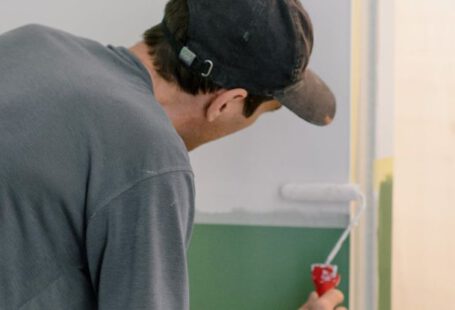Composting is a fantastic way to reduce waste, enrich soil, and contribute to a more sustainable lifestyle. However, even the most well-intentioned composters can make mistakes that hinder the process and result in less effective compost. By being aware of common composting errors and learning how to avoid them, you can ensure that your compost pile thrives and produces nutrient-rich soil for your garden. Let’s explore some of the most prevalent composting mistakes and how to steer clear of them.
Choosing the Wrong Location
Selecting the right spot for your compost pile is crucial for its success. Avoid placing your compost bin in direct sunlight, as excessive heat can dry out the materials and slow down the decomposition process. Similarly, a shady spot might not provide enough warmth for the compost to break down effectively. Opt for a location that receives partial sunlight and is well-drained to create an ideal environment for composting.
Ignoring the Carbon-Nitrogen Balance
Achieving the correct balance of carbon-rich (browns) and nitrogen-rich (greens) materials is essential for successful composting. Neglecting this balance can lead to a smelly, slow-to-decompose pile. Greens provide essential nutrients for microorganisms, while browns create airflow and structure. Aim for a ratio of roughly 3 parts browns to 1 part greens to maintain a healthy compost pile.
Adding the Wrong Materials
Not all organic materials are suitable for composting. Avoid adding meat, dairy, oils, and pet waste to your compost bin, as these items can attract pests, emit foul odors, and introduce harmful pathogens. Additionally, steer clear of diseased plants or weeds that have gone to seed, as they can contaminate your compost with pests and diseases. Stick to fruit and vegetable scraps, coffee grounds, eggshells, yard waste, and other plant-based materials for a successful composting experience.
Neglecting the Moisture Level
Proper moisture is crucial for the decomposition process in your compost pile. A common mistake is letting the compost become too dry or too wet. Dry compost will decompose slowly, while overly wet compost can develop a foul odor and attract pests. Aim for a moisture level similar to a wrung-out sponge—damp but not dripping. Regularly check the moisture content of your compost pile and adjust as needed by adding water or dry materials.
Skipping the Turning Process
Turning your compost pile is essential for aerating the materials and promoting decomposition. Neglecting this step can result in a slow, anaerobic breakdown that produces unpleasant odors. Aim to turn your compost pile every 1-2 weeks to introduce oxygen and ensure that all materials are breaking down evenly. Consider investing in a compost aerator tool to make the turning process easier and more efficient.
Failing to Monitor Temperature
Monitoring the temperature of your compost pile can provide valuable insights into its progress. A healthy compost pile will generate heat as microorganisms break down the materials. Ideally, the temperature should reach between 135-160°F (57-71°C) to ensure efficient decomposition and kill off weed seeds and pathogens. Use a compost thermometer to regularly check the internal temperature of your pile and adjust the materials if needed to maintain optimal conditions.
Conclusion: Embracing Successful Composting Practices
Composting is a rewarding and environmentally friendly way to reduce waste and create nutrient-rich soil for your garden. By avoiding common composting mistakes such as choosing the wrong location, neglecting the carbon-nitrogen balance, adding inappropriate materials, ignoring moisture levels, skipping the turning process, and failing to monitor temperature, you can set yourself up for composting success. Remember to be patient and attentive to your compost pile’s needs, and soon you’ll be rewarded with dark, crumbly compost that will nourish your plants and help you cultivate a more sustainable lifestyle.





